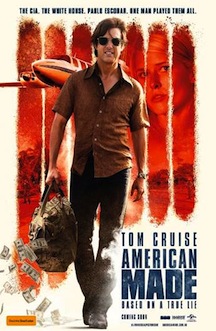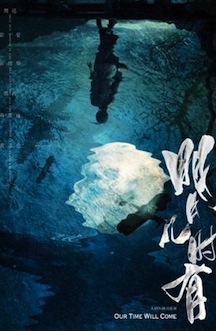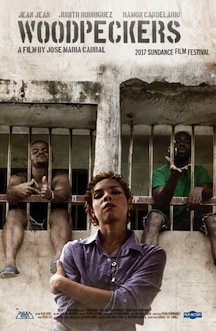Directed by Benny Safdie and Josh Safdie
Country: USA
The filmmaking artistry of the brothers, Benny and Josh Safdie, belong to that independent, neo-realistic wave that is definitely worth checking out. Poignant dramas such as “Daddy Longlegs” and “Heaven Knows What”, definitely career peaks, are treasures very unlikely to be forgotten for those who had the chance to dig them up.
Their latest work, a noir crime-drama film sarcastically entitled “Good Time”, feels more like a downbeat misadventure covered with an intense dramatic wallop. The film, satisfactory as a whole, captures our attention for the most of its duration, however, the directors couldn’t eschew a few uneven, maybe even rudimentary sequences whose intermittence in terms of thrills, together with the persistent sensation of déjàvu that surrounds us, could have compromised the outcome. Still, the Safdies managed to tie everything together, minimizing the damages with the rawness of the scenes and the effectiveness of the performances.
The script, emphasizing the tremendous influence one person can have on another, especially if related, focuses on two brothers who, although very distinct in nature, are connected by an unstable, traumatic past that makes them misfits with a frequent unlawful conduct. Emotionally torn apart and often confused in the mind, Nick (Benny Safdie) shows to be a good-natured young man desperately in need of psychological help. That essential support was being given to him by Dr. Peter (Peter Verby), who reveals a dedicated interest in his case, but the work is interrupted without warning when Nick’s older brother, Connie (Robert Pattinson), an erratic criminal whose conscienceless is barbarous, walks in without permission and drags his brother out of the room. Don’t think he did that because he was worried about him, or because he didn't understand the treatment his brother was being subjected to. The viewer instantly acknowledges that his intentions have an egotistic purpose, a fact corroborated when the following sequence of images shows them robbing a bank, silently and discreetly, wearing rubber masks to hide their faces.
The heist is successful; yet, an unexpected incident impels the police to go after them. Connie just wants to save his ass, leaving behind a disoriented Nick, who ends up in the hole.
In a desperate attempt to gather the large sum of money required to bail Nick out of the jail, Connie contacts his precarious girlfriend Corey (great appearance by Jennifer Jason Leigh), whose elderly mother is wealthy but not so fool to give her credit cards. The plan falls flat, but Connie engenders another scheme when informed that his brother was transferred to the hospital after a fight with other inmates.
Ironically, from this point on, the pace wobbles considerably, regardless the introduction of new characters and the creation of situations full of potential that should have given the film a more stimulating perspective. Playing with luck, Connie sneaks into the hospital but picks up the wrong person, a guy named Ray (Buddy Duress), another crooked loser like him who had been released from prison on parole one day before.
After securing the precious cooperation of Crystal (Taliah Webster), a 16-year-old girl whom he totally discards after getting what he wants, Connie and his new partner, fall into a spiral of criminal actions that will complicate their miserable lives even more.
This wild ride, part social commentary, part character study, is not a pleasurable watch, holding a tighter grip in its first half, but failing to surprise in the debilitating second.




























































